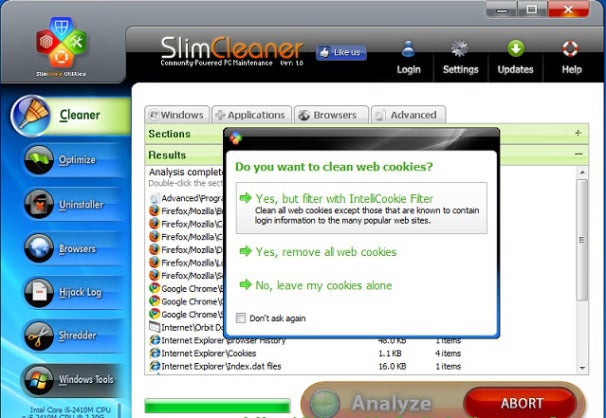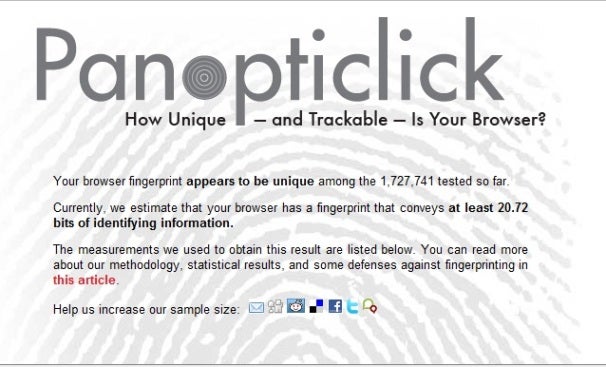Everybody loves cookies, those little packets of code that websites leave in your browser. We love them because they make Web browsing more convenient by saving our usernames, passwords and other unique data from one session to the next. Marketing companies love them because they uniquely identify visitors and can be combined with traffic logs to compile a profile of your interests and browsing habits.
As long as you are a willing participant, this sort of tracking can be a good thing; browser cookies allow online retailers to tailor their websites to your needs and ensures you are more likely to see advertisements for products and services relevant to your interests. The problem is that lots of unscrupulous companies are using underhanded techniques to sneak cookies into your browser even when you don’t want them. They’re called supercookies, and they can be stopped with a few free utilities and some simple precautions.
Of course, you can disable storage of standard HTTP cookies via your browser’s privacy controls. Unfortunately, many popular websites now track users with unique data packages designed to circumvent your browser’s privacy filter. These souped-up data packages are colloquially known as supercookies, and they typically take advantage of alternate storage areas within your browser to store unique snippets of code and replicate that site’s HTTP cookie in the event you block or delete it from your browser.
With a little time and effort you can manually wipe these supercookies from your computer, but clearing out all the supplementary bits of code that transform a regular cookie into a supercookie is a time-consuming process. For example, to prevent Flash cookies you’ll need to visit the Adobe Website Storage Settings panel and click “Delete All Sites” to clear out any data stored in Flash on your computer, then hop over to the Global Storage Settings panel and disable third-party Flash content from storing data on your computer in the future.

Unfortunately, doing so also ruins the experience of visiting many restaurants, retailers and really any organization that relies heavily on Flash content. If you’re willing to download some free software, it’s easier to clean out any supercookies hiding in your computer with utilities like SlimCleaner and CCleaner.
SlimCleaner is an especially smart choice if you are worried about supercookies, as it incorporates an IntelliCookie feature that allows you to save cookies from trusted sites like your bank while deleting everything else. Mac-compatible versions of both utilities are available, though OS X users can also download the free Flash cookie removal app Flush.

The final step in safeguarding your privacy online is installing third-party software that blocks supercookies from infesting your browser in the first place. Firefox extensions like BetterPrivacy and NoScript make it easy to selectively filter what web scripts are allowed to run on your computer, ensuring that online marketers will have a difficult time tracking you without your permission. You can find out exactly how trackable you are by pointing your browser at the Electronic Frontier Foundation’s Panopticlick website and taking their free browser fingerprint test, which rates how easy it is to uniquely identify you based on what information your browser is sharing and saving. Prepare for the test with these simple precautions, and I think you’ll be pleasantly surprised with the results.
nb : pcworld
-=WELCOME IN MY BLOG=-
All About : Hacking, Cracking, Phreaking, Carding, Virus, Social Engineering, IRC, Windows, Linux, Hardware, Software, Networking, Programming, Web/ Graphic Design, Batch, Shell, DOS, Command Line Interpreters, Info, Phone
29/08/11
How To Protect Yourself From Supercookies
Langganan:
Posting Komentar (Atom)
![[+]d'ZheNwaY's Blog[+]](http://feeds.feedburner.com/blogspot/YRtWp.1.gif)

Tidak ada komentar:
Posting Komentar